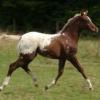Magic and Science: A little background from WL
Before I post my story, I want to first establish some common concepts.
In ancient China, there were many superstitions about Taoism and Taoists followers, including their ability to perform magic, increase a human lifespan, and communicate with spirits, Gods, and other beings beyond the realm of man. The mystic tradition of Taoism still believes in the powerful potential of studying Taoist texts like the Tao te Ching and performing traditional rituals that were borrowed from spiritualists during the era of the Hundred Schools of Thought.
My story takes the traditional roots of Taoism and reflect it on the non-mystical side. Not all Taoists believed in magic spells and hocus pocus. There were other scholars, who reflected on the Tao te Ching as a book of natural observation and sought empirical evidence to justify natural phenomenon. The creators of Paper, Gunpowder, presses/machines, and the Compass were followers of the second school of thought.
In my story, I pushed their concepts further: What if they didn't stop with the Big 4 Chinese inventions? What if a secret society of Taoist had continued on this path and mastered technologies centuries ahead of their time? Early Chinese experiments in rocketry and chemistry could have led eventually to space travel. Machines could have been developed and became far more intricate; perhaps even influencing others. Magnetism could have led to advances in physics; perhaps even something extremely destructive. Paper could have been the first resource of secret communications between groups of researchers.
Unlike the western world, most Asian nations never experienced a dark age with the loss of prior knowledge, but instead mysticism and "order" under Confucian principles eclipsed scientific investigations as Chinese culture changed and this change spread during the late 14th and 15th centuries.
However, that's not to say I want to abandon magic. Arthur C. Clarke made the correct note on this:
Any sufficiently advanced technology is indistinguishable from magic
What prompted the early Taoist to make such leaps and bounds in science, when most of the world was still living by superstition and fear? Science was in its infancy in antiquity, Archimedes and the Egyptians were thousands of miles apart from the 7 Kingdoms that would one day form China. What if they found something, something that they were perhaps destined to find.
In Chinese superstition, there are many powerful "books of knowledge" in Taoist mystic tradition. Beyond the Tao Te Ching, there is the I Ching, which is noted as one of the earliest forms of Chinese records and philosophical concepts. Beyond the two well known books, there are other more obscure texts, including one that the Novel's protagonist is heir to, The Book of Fate. In my novel, the Book of Fate can reveal the past, the present, and the possible futures to its owner; allowing him to hold knowledge itself in his hands;
Another Book of knowledge to make an appearance in my novel is, The Book of Life and Death, but western viewers will know this book by the Anime "Death Note", which is the Japanese equivalent concept. The Underlying rule is the same for "the Book of Life and Death" and "Death Note", you write a name in and the person dies. However, universal equilibrium means that for each name written into the book, another name must be written off. To kill someone outside of his time to die, someone who should die must be allowed to live.
Hope that little preview give you guys an idea.
-
 1
1







1 Comment
Recommended Comments
Create an account or sign in to comment
You need to be a member in order to leave a comment
Create an account
Sign up for a new account in our community. It's easy!
Register a new accountSign in
Already have an account? Sign in here.
Sign In Now